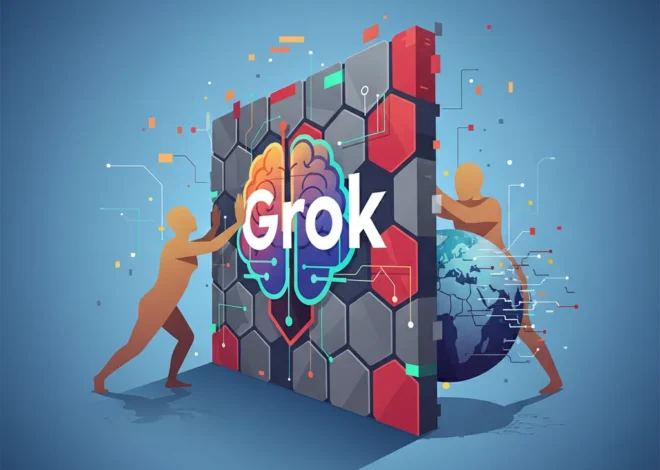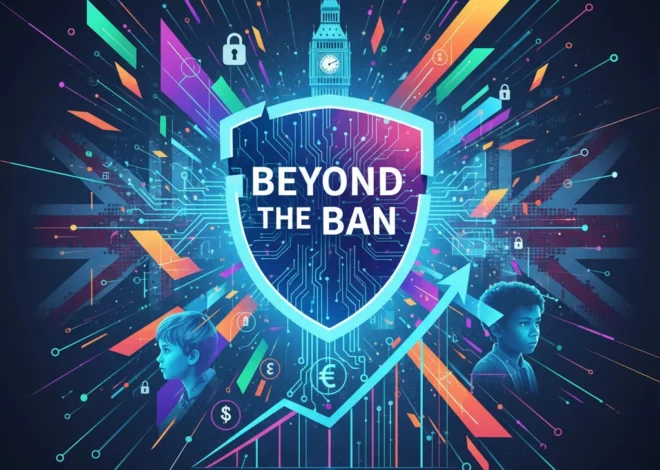
The Invisible Liability: How “Shadow AI” in Hiring is a Ticking Time Bomb for Corporate Finance and Investors
The global economy is in the throes of an artificial intelligence revolution. Companies are pouring billions into AI infrastructure, and the stock market has rewarded firms at the forefront of this wave with staggering valuations. For investors and business leaders, the focus has been on harnessing AI for productivity gains, market prediction, and technological supremacy. Yet, a hidden and rapidly growing threat is emerging not from sophisticated cyber-attacks or market volatility, but from within the very fabric of corporate operations: Shadow AI.
This term describes the unsanctioned, unvetted, and often invisible use of AI tools by employees to perform their daily tasks. While it may seem like a harmless productivity hack, its application in one of the most critical business functions—hiring—is creating a significant, unquantified liability on corporate balance sheets. As Khyati Sundaram, CEO of ethical AI hiring experts Applied, recently warned in a letter to the Financial Times, allowing this practice to become embedded could have disastrous consequences for diversity, fairness, and ultimately, a company’s financial health.
This isn’t just an HR issue; it’s a fundamental challenge to corporate governance, risk management, and long-term shareholder value. For anyone involved in finance, investing, or corporate leadership, understanding and mitigating the risk of shadow AI is no longer optional—it’s essential.
The Allure and Danger of Unregulated AI in Recruitment
Imagine a hiring manager, overwhelmed with hundreds of resumes for a single position. To save time, they turn to a freely available generative AI tool, pasting in a job description and a stack of CVs with a simple prompt: “Shortlist the top five candidates.” The AI, trained on vast, biased datasets from the public internet, dutifully complies. It might favor candidates from certain universities, penalize gaps in employment (which disproportionately affect women), or replicate historical biases against underrepresented groups. The manager gets a fast result, but the company has just unknowingly engaged in a potentially discriminatory and suboptimal selection process.
This scenario is playing out in thousands of organizations. The appeal is obvious: it’s fast, cheap, and accessible. However, the hidden costs are astronomical. These unsanctioned tools operate as “black boxes,” with no transparency into their decision-making logic. They lack the rigorous testing, de-biasing, and validation that specialized financial technology (fintech) platforms undergo before being deployed in sensitive areas like credit scoring or algorithmic trading.
The consequences manifest in several financially toxic ways:
- Increased Cost of Bad Hires: A bad hire is one of the most significant hidden costs in any business. The U.S. Department of Labor estimates the average cost of a bad hire can equal 30% of the employee’s first-year earnings. For a senior role, this can easily run into six figures, impacting everything from team morale to project timelines and, ultimately, the bottom line. Shadow AI, by optimizing for speed over quality and fairness, dramatically increases the odds of making these costly mistakes.
- Legal and Regulatory Minefields: Regulators are catching on. In the United States, New York City’s Local Law 144 now requires employers using automated employment decision tools to conduct independent bias audits and provide transparency. Failure to comply can result in hefty fines. Similar regulations are emerging globally. A company with rampant, undocumented use of shadow AI is a lawsuit waiting to happen, creating a massive contingent liability that should concern any prudent investor.
- Erosion of Diversity and Innovation: The long-term health of the economy depends on innovation, which is fueled by diverse perspectives. AI models trained on biased data perpetuate the status quo, creating homogenous teams that are less resilient, less creative, and less capable of solving complex problems. This isn’t just a social issue; it’s a direct threat to a company’s competitive edge and its performance on the stock market.
The Stablecoin Paradox: Is FinTech's Holy Grail a Dangerous Illusion?
A Lesson from Banking and Fintech: The Imperative of Governance
The world of finance offers a powerful parallel. The banking and fintech industries are built on a foundation of trust, transparency, and rigorous risk management. No bank would allow its loan officers to use a random, unvetted algorithm downloaded from the internet to make credit decisions. The models used in financial technology for everything from fraud detection to automated trading are meticulously built, tested, and audited to ensure fairness, accuracy, and compliance.
Why should talent acquisition—the process of acquiring a company’s most valuable asset—be treated with any less rigor? The principles that govern robust fintech solutions must be applied to HR technology:
- Transparency: The system’s logic should be explainable.
- Audibility: Decisions must be traceable and subject to independent review.
- Fairness: The system must be proactively tested and de-biased.
- Accountability: There must be clear ownership and governance within the organization.
Just as blockchain technology offers an immutable and transparent ledger for transactions, ethical AI platforms can provide a clear, auditable trail for hiring decisions, protecting the company and ensuring the best talent rises to the top, irrespective of their background.
Comparing the Financial Impact: Shadow AI vs. Ethical AI
To truly understand the stakes, it’s helpful to visualize the divergent paths a company can take. One path embraces unchecked, shadow AI for perceived short-term efficiency gains. The other invests in a structured, ethical AI framework for long-term value creation. The financial and operational implications are starkly different.
The following table breaks down the comparison across key business metrics:
| Business Metric | Shadow AI Approach | Vetted Ethical AI Approach |
|---|---|---|
| Recruitment Cost | Appears low initially (free tools), but high hidden costs from bad hires and churn. | Higher initial investment in platform, but significantly lower long-term costs due to better hire quality and retention. |
| Legal & Compliance Risk | Extremely high. Opaque, unauditable processes create massive exposure to discrimination lawsuits and regulatory fines. | Low. Transparent, auditable, and compliant-by-design systems provide a strong legal defense. |
| Talent Quality | Suboptimal. Prioritizes pattern-matching over skills, leading to homogenous teams and missed opportunities with top candidates. | High. Focuses on skills and predictive performance, identifying the best candidate for the job, increasing innovation and productivity. |
| Brand & Reputation | Vulnerable to public accusations of bias, damaging employer brand and affecting stock market perception. | Enhanced reputation as a fair and forward-thinking employer, attracting a wider and more diverse talent pool. |
| Data Security | High risk. Sensitive candidate data is often processed by third-party tools with unknown security protocols. | Secure. Data is managed within a vetted, enterprise-grade platform with clear security and privacy controls. |
The BBC's Billion-Pound Blind Spot: Why Its Next Leader Must Be a Finance Pro
An Actionable Playbook for Leaders and Investors
Ignoring shadow AI is no longer a viable strategy. Proactive governance is essential. This requires a two-pronged approach targeting both corporate leadership and the investment community that holds them accountable.
For Business Leaders & Boards:
- Audit Your Process: You cannot manage what you cannot measure. Conduct an internal audit to understand where and how AI is being used in your hiring pipeline. Survey your teams to uncover the use of unsanctioned tools.
- Establish a Clear AI Governance Policy: Create and communicate a company-wide policy on the use of AI tools, especially for sensitive functions like HR and finance. Prohibit the use of unvetted platforms for hiring decisions.
- Invest in Ethical Technology: The solution to bad AI is not “no AI.” It’s “good AI.” Invest in specialized, ethical hiring platforms that are built on principles of fairness, transparency, and skills-based assessment. According to a report cited by SHRM, the adoption of AI in HR is already widespread, making the choice of *which* AI to use paramount.
For Investors & Financial Analysts:
- Update Your Due Diligence Checklist: When evaluating a company, go beyond the financials. Ask pointed questions about their AI governance. Does the company have a formal policy? How do they audit for AI-driven bias? This is a key indicator of operational maturity.
- View Talent as a Core Asset: In today’s knowledge-based economy, a company’s ability to attract and retain top talent is a primary driver of its success. A flawed, biased hiring process is a direct threat to the health of this asset.
- Reward Transparency: Advocate for greater disclosure around the use of automated systems in corporate governance reports. Companies that are transparent about their ethical AI frameworks are likely better managed and represent a lower-risk investment.
Geopolitical Chess at COP30: How Brazil's Climate Diplomacy is Reshaping Global Finance
The rise of AI presents a generational opportunity for progress and economic growth. However, like any powerful technology, its unguided application can create systemic risks that undermine the very foundations of fair commerce and sound investing. Shadow AI in hiring is the canary in the coal mine—a warning that a lack of governance can quickly turn a tool of efficiency into a source of immense financial and reputational liability. By addressing it head-on, business leaders and investors can protect their assets and build stronger, more resilient, and more valuable organizations for the future.


